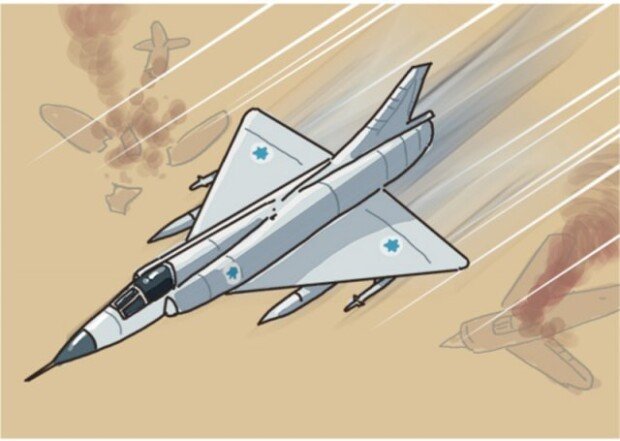Preemptive strikes
Preemptive strikes
Posted October. 18, 2022 07:36,
Updated October. 18, 2022 07:36

Countless wars broke out in the 20th century. Some wars were based on great and innovative tactics, while some were mere ludicrous conflicts. Among them is a six-day war in 1967, which was led by Egypt and Syria joining forces with Jordan, Lebanon and Iraq to attack Israel. It ended in six days with the Israeli victory. Egypt, which the Arabs believed to have the strongest forces, yielded after just three days since the outbreak of war.
Egypt’s absurd defeat was decisively attributable to the Israeli air force’s preemptive strike that devastated all of Egypt’s air power through air attacks on all of Israel’s air bases. The Sinai Peninsula is a place that has no place to avoid or hide from air strikes. Israel’s fighter jets that entirely dominated the air battle attacked the Egyptian tanks, vehicles, and soldiers without merci that were helplessly exposed to the raid in the Sinai desert. Israel’s victory was indeed a fruitful result of the efforts and tactics of the air force and pilots of Israel, but as with all dramatic victories in history, it might have been impossible without Egypt’s “help” as one might put it.
Being conscious of international perceptions, Egypt wanted to justify its defeat by saying that Israel launched a preemptive strike. In fact, Israel made a poor calculation that a preemptive strike might damage only around 20 percent of its air forces. Moreover, even though the country braced itself up for a war, Egypt did not give approval for its preemptive air strike. Ironically, in the Yom Kippur War in 1973, the Israelis almost lost their country after it allowed a preemptive strike by Egypt for the same reason.
In the modern era, where it is difficult to turn a deaf ear to international opinions, preemptive strikes can easily become a ground for accountability for war crimes. It may be the case when a preemptive attack was launched while the counterpart doesn’t have any intention to attack or is putting efforts to find a peaceful solution. However, in a case when war is inevitable, asking who fired first may be a stupid question.
A war of aggression is not all about attacks, and a defensive war does not just involve defense. Armed forces should be skilled at both attack and defense, and only then a country can have a defensive war. All wars must be prevented, but the most effective way to avoid one is to not let the other win.







